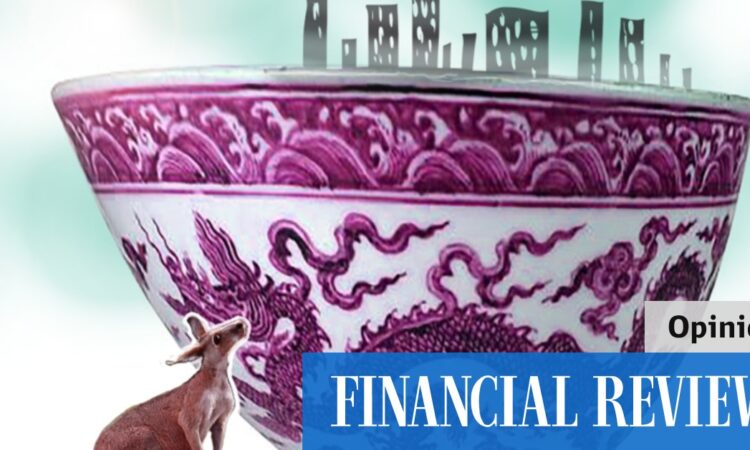
Yet still our trade with the countries of ASEAN is small compared with North Asia. The reason is simple. The huge North Asian economies are complementary with Australia’s: that is, we produce cheaply and efficiently what they need – food, iron ore, coal, LNG, lithium and so on – whereas the smaller economies of ASEAN are less complementary.
But its investment that tells a more important story. Australia is by world standards a big investor. Our country is rich and our superannuation policies have accumulated one of the world’s largest pools of savings. We are around the 15th largest foreign investor on Earth.
But what is revealing is where Australia invests its money. According to DFAT, about 30 per cent is invested in the US. The next largest destination is the UK, around 22 per cent. And then New Zealand with 4 per cent.
The most significant ASEAN investment destination is, unsurprisingly, Singapore, but it attracts only 2 per cent of our overseas investments. And Singapore is the only ASEAN country in our top 20 investment destinations.
The inward foreign investment figures follow the same pattern. The DFAT figures show the US and then Britain are the two largest foreign investors in Australia. Twenty-four per cent of foreign investment comes from the US and 22 per cent from the UK.
Singapore, again, is the only ASEAN country among the top 20 investors in Australia. And by the way, if you are concerned China is buying up Australia, it only contributes 1.9 per cent of total foreign investment, although if we add Hong Kong to China then the figure is about 4.5 per cent.
Why is it that for all the engagement with ASEAN at the political and strategic level, our economic engagement is so limited? The answer is simple: it’s easier and safer to invest in the US and the UK than ASEAN.
The prime minister tells us Australians should invest more in ASEAN and that if we don’t we are missing great opportunities. In a way, I wish that were true. Then our strategic and economic interests would be aligned. But businesses and superannuation funds need to invest where they can make money, rather than out of political convenience. If they politicise investments they’ll lose money and we’ll all be poorer for that.
Sovereign risk
The challenge isn’t for us: it’s for ASEAN. ASEAN countries need to make their countries more attractive to foreign investors. If they did, it would help lift their living standards and help catapult them into developed countries. The thing is, most of them would rather keep assets under local ownership rather than open their countries up to foreign investors. They pay an economic penalty for that, of course.
And then there is the problem of sovereign risk. How secure is an investment from capricious changes in government policy or vexatious litigation in legal systems that are a little … er … how should I put it, fragile?
Years ago the ANZ bank bought a British bank called Grindlays, then the largest foreign bank in South Asia. So suddenly Australia was a big money investor in India, Pakistan, Bangladesh and Sri Lanka. I remember being the guest of honour at a spectacular open-air dinner in Karachi hosted by the head of ANZ Pakistan. Australia was praised to the sky.
But eventually ANZ sold Grindlays and that diminished Australia’s presence on the subcontinent. It reduced our soft power and relevance. When I told the ANZ CEO of my disappointment he made the unanswerable point that his first responsibility was to his shareholders and the bank had to maximise its returns, not make political points. The bank could make better use of its capital elsewhere. Indeed.
I always argued as foreign minister that going begging to be accepted by Asia was just pathetic. If Australia wanted to be taken seriously it had to be a contributor to Asia. We offer two things. One is our unshakable alliance with the United States, which underwrites the regional balance of power. ASEAN leaders won’t say it publicly, but they’re all grateful for that.
The other is our huge economy. We can give fast, effective help when it’s needed, as we did in the Asian economic crisis, the tsunami and over East Timor. Well, we have a huge economy because we’ve welcomed investment and know that prosperity is created by competitive businesses making their own investment decisions, not by government diktats.
ASEAN, too, could be richer if it kept deregulating businesses and protected business investments with independent and incorruptible legal systems. They won’t want to be told that by us, but that’s the way to get our investment away from the US and UK and into South-East Asia.
Have your say
We are always interested to hear your views on current topics.
- Guidelines for how to write an opinion article are here.
- Guidelines for how to write a letter to the editor are here. Please send your letter to [email protected]






